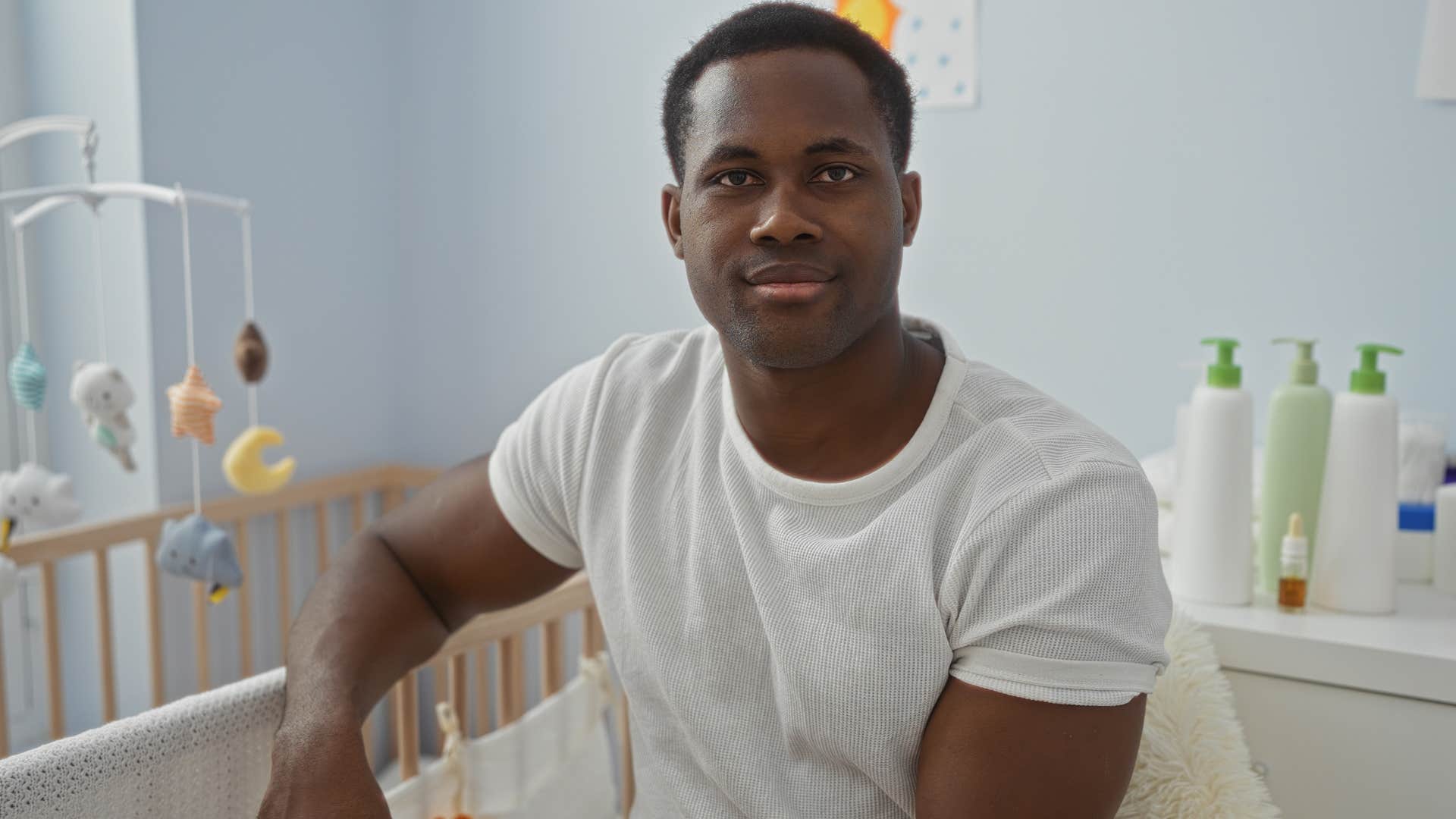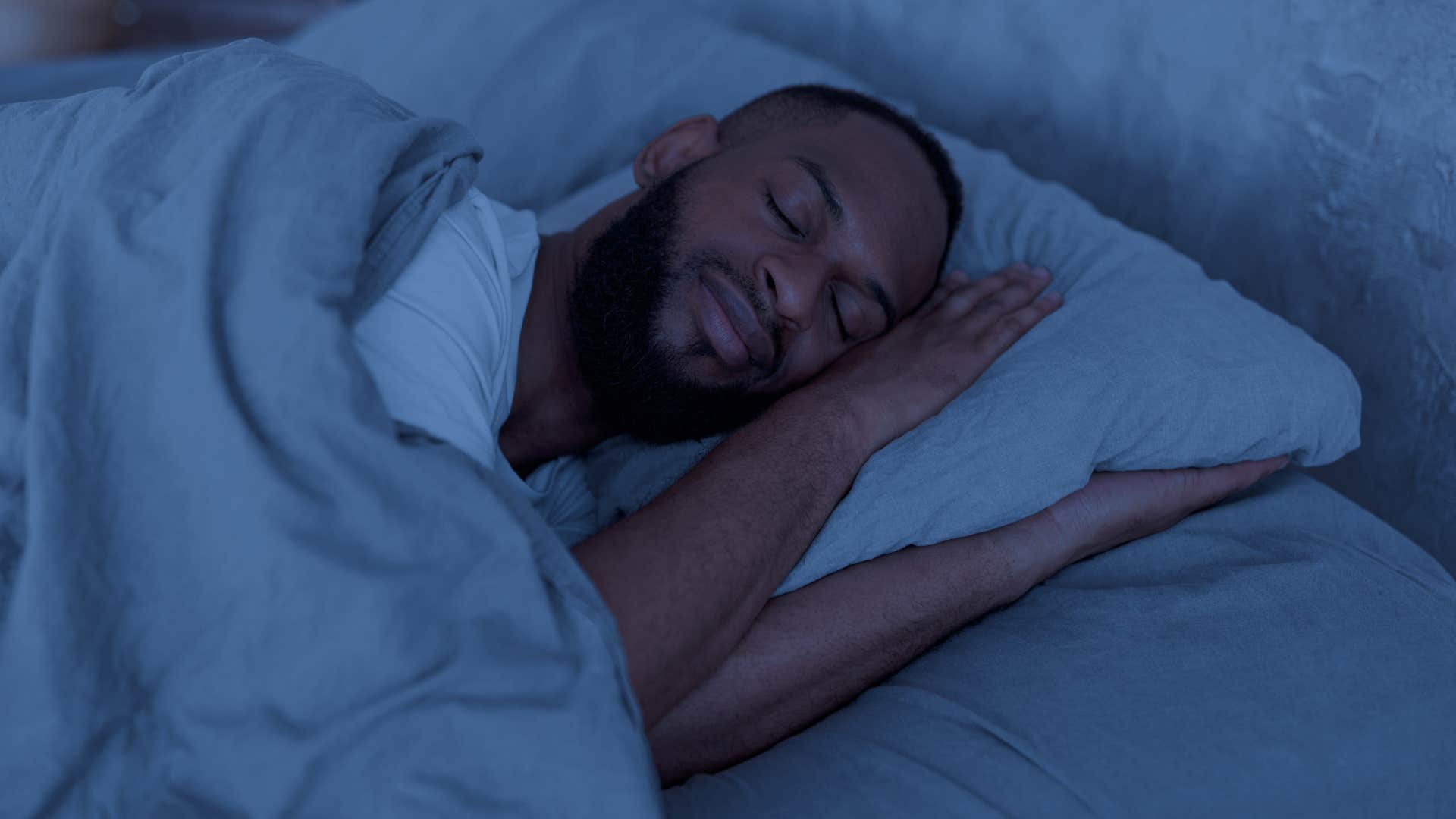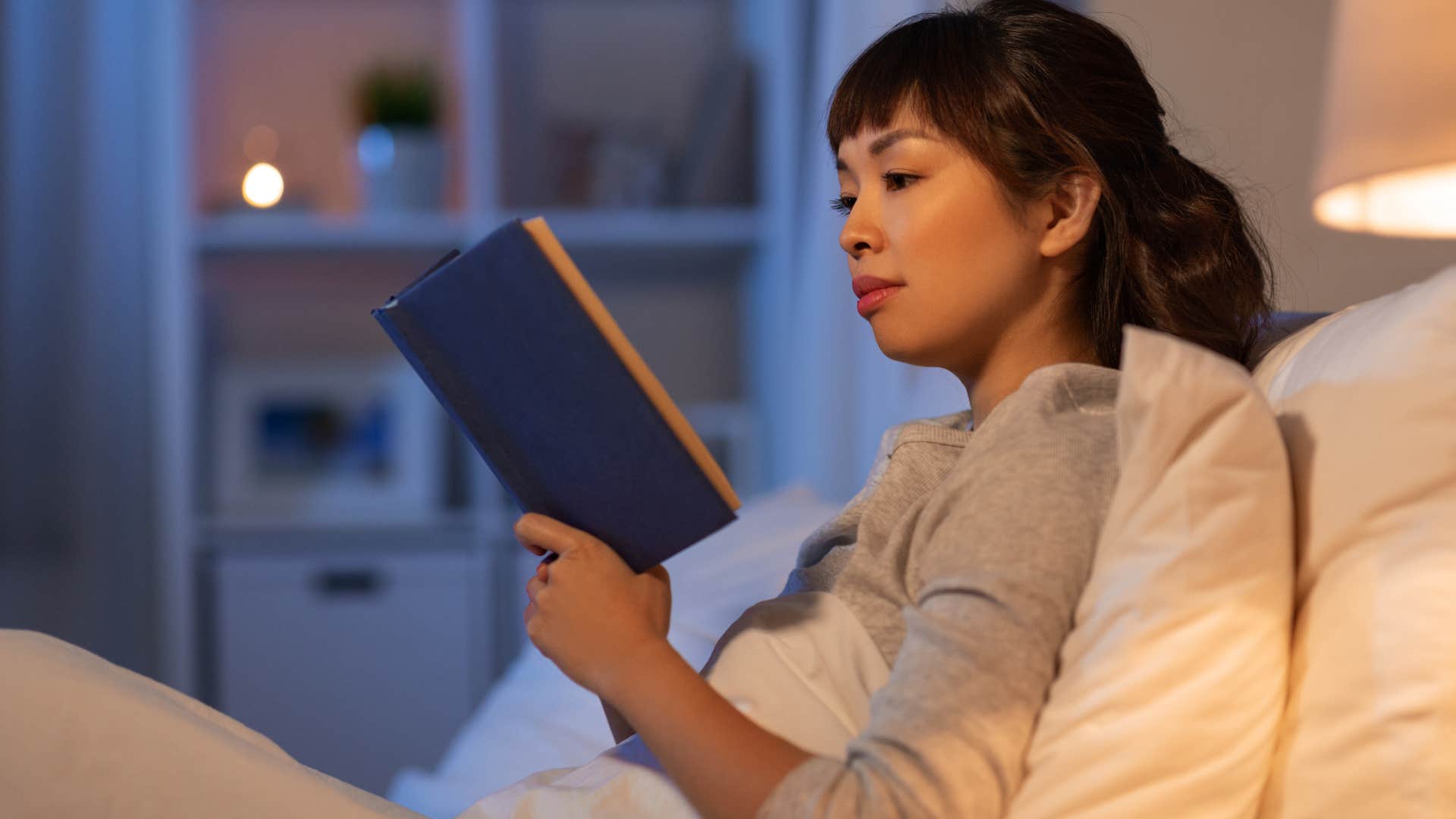Married People Who Start Sleeping In Different Rooms Usually Have These 11 Reasons
It's not always an indicator of lacking intimacy or emotional distance.
 Miljan Zivkovic | Shutterstock
Miljan Zivkovic | Shutterstock Nearly 30% of Americans are sleeping in different beds or bedrooms from their partners, according to a survey from the American Academy of Sleep Medicine, and many of them are reaping the benefits. Even if it may seem unconventional to some or unsustainable for others, just because they have separate beds doesn't mean they're always sleeping separately — it's simply to cultivate their own time, comfort, and space.
From differences in temperature preference, to alternating schedules, and even new parenthood, many married people who start sleeping in different rooms usually have these reasons, along with a sleuth of others that contribute to a happier, healthier, and more balanced dynamic in their general relationship.
Married people who start sleeping in different rooms usually have these 11 reasons
1. They sleep better alone
 Maridav | Shutterstock
Maridav | Shutterstock
Whether it's differences in temperature preferences in the bedroom, another partner's snoring, or simply a matter of comfort without another person in bed, married people who start sleeping in different rooms may just sleep better when they're alone.
Of course, that doesn't mean that these couples aren't ever sharing a bed or waking up next to each other, they're just more intentional about having sleepovers and nights together when they're less concerned about their sleep quality.
2. Sleepovers feel more special and intimate
 PeopleImages.com - Yuri A | Shutterstock
PeopleImages.com - Yuri A | Shutterstock
When couples intentionally choose to spend their evenings together or sleep in the same bed, it makes those moments of quality time feel more special and intimate. Even if they sleep better in separate beds or reap the benefits of having their own bedroom spaces, coming together on special occasions or when someone needs extra support bonds them even more.
Especially when these moments boost relationship satisfaction and general happiness between partners, it can ensure they sleep better — both in separate beds and together — like a study from Sleep Medicine Reviews argues.
3. They have more space for hobbies
 Halfpoint | Shutterstock
Halfpoint | Shutterstock
According to a study from Nature Medicine, people who have consistent hobbies report better health, happiness, and life satisfaction than those who don't. Although it can be hard to make time for these passions amid the chaos of a daily schedule, relationships, and family responsibilities, carving out space for hobbies can ensure you show up as your best self in every aspect of your life.
Married people who start sleeping in different rooms usually have these reasons — whether it's writing in their journals, reading before bed, watching a TV show only they love, or knitting, they have time to engage in their hobbies in the solitude of their own personal bedroom at night.
4. They can decorate in a personal way
 Prostock-studio | Shutterstock
Prostock-studio | Shutterstock
One of the most important things that happens when couples move in together is compromise, even for things as seemingly subtle as home decor and chosen furnishings. The way a couple interacts, bonds, communicates, and compromises in these situations, like a Sofary study suggests, determines their health and well-being.
Married people who start sleeping in different rooms may struggle to compromise on the kinds of things they want in their sacred spaces. From the type of mattress they need to sleep the best, to the fabric of a comforter, decorations on the walls, and personal artwork, sleeping in separate rooms gives each partner a chance to carve out a space that's self-expressive and unique.
Even if marriage and healthy relationships are defined by togetherness, individuality and a connection with the self for each partner is just as important.
5. Their solitude is sacred
 javi_indy | Shutterstock
javi_indy | Shutterstock
According to licensed counselor Suzanne Degges-White, building self-intimacy in a relationship — reflecting on personal identity, building self-esteem, and connecting with habits, passions, and hobbies — is just as important for determining relationship well-being as intimacy with a partner.
Considering that alone time and intentional solitude is key for building this kind of intimacy with the self, it's not surprising that married people who start sleeping in different rooms do so for this reason — they have more time alone, even if it's just a few minutes before falling asleep.
When partners are more connected and in tune with themselves, they show up better for each other and craft a relationship dynamic that truly considers all of their best interests and needs.
6. They have different work schedules
 Gorodenkoff | Shutterstock
Gorodenkoff | Shutterstock
Many couples with different work schedules benefit from sleeping in different rooms. When their partner wakes up earlier and starts getting ready for work, they're not disrupting or waking up the other, giving them the space they need to get the quality and duration of rest that they truly need.
Even if it seems innocent at the moment, long-term disruptions to sleep duration and quality can have negative effects — from decreased mood, to mental health concerns, relationship strain, and physical health issues, according to a 2017 study.
7. They're dividing up parenting responsibilities
 Krakenimages.com | Shutterstock
Krakenimages.com | Shutterstock
Especially for new parents with young children, dividing up responsibilities between parents can ensure that everyone feels supported and secure. Not only does this fend against the possibility of resentment for parents — specifically, mothers who tend to bear the majority of the childcare burdens in a traditional relationship, despite out-working and out-earning their partners — it also gives them the opportunity to prioritize their sleep.
While sleep deprivation is often a battle to fend off early in a child's life, it's important for parents to make it a priority, especially considering that parents who consistently get less-than-recommended hours of sleep interact with their children more negatively, according to a study from the Journal of Family Psychology.
8. They have different bedtimes
 Prostock-studio | Shutterstock
Prostock-studio | Shutterstock
Even if they're both waking up at the same time in the morning, it can be frustrating for people going to bed earlier to wake up when their partner comes to bed several hours later. Married people who start sleeping in different rooms usually have these reasons — they want their bedtime to be respected, to get the sleep they need, and to go to bed without disturbances.
A study from American Sociological Review also found that women, on average, need more sleep than their male counterparts, so having different beds and bedrooms ensures that they're able to go to bed and stay asleep — maximizing the quality and duration of their rest.
9. They don't rely on each other for safety
 Ground Picture | Shutterstock
Ground Picture | Shutterstock
It may seem silly, but many partners who aren't stressed, hyper-vigilant, or vulnerable when they go to bed at night — whether as a result of their environment or personal sense of self-preservation — may not feel driven to sleep with their partner for comfort and protection.
Interestingly enough, attachment styles in a relationship plays a role in sleeping patterns, quality, and stress reduction before bedtime, according to a study from the Journal of Sleep Research. People with secure attachments — who view their partners as a stable and secure base in their lives — generally reap a lot of mental and physical health benefits from sleeping with their partner, largely because they're in their most vigilant and vulnerable state in the bedroom.
However, for avoidant and insecure attached people — who are either uncomfortable with intimacy, self-reliant, or too difficult to comfort and reassure — sleeping in the same bed as their partner makes little difference on their feelings of intimacy and togetherness. In these situations, having their own bed and bedroom can provide space for self-reflection, better sleep quality, and less irritability the following day in their lives and relationships.
10. They have different nighttime routines
 Krakenimages.com | Shutterstock
Krakenimages.com | Shutterstock
According to a Scientific Reports study, many adults benefit from a consistent bedtime routine — including maintaining a specific and consistent bedtime every night. Whether it's reading before bed, having a bedtime snack, setting their morning alarms, or simply resting in their bedrooms, married people who start sleeping in different rooms usually have these reasons — and they differ from their partners.
They want to have the space and time to rest and relax before bed without bothering or being bothered by their partner. Of course, they can still cuddle, talk, and relax together, but having separate rooms makes this intentional quality time more intimate, special, and bonding.
11. They communicate better
 DexonDee | Shutterstock
DexonDee | Shutterstock
When couples have the space at the end of a long day to retreat to their own bedroom, reflect on their thoughts, replay conversations, and regulate their emotions, they show up better in conversations with their partner the next day.
They have the alone time to think about their behaviors and language in ways that they may not sleep in the same bed as their partner. Even if it's just for the sake of having time to rest and reflect, married people who start sleeping in different rooms may have this reason.
Zayda Slabbekoorn is a staff writer with a bachelor's degree in social relations & policy and gender studies who focuses on psychology, relationships, self-help, and human interest stories.

